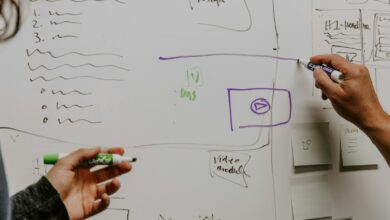Online elderly care – senior support income

Implementing remote assistance platforms for aging populations can generate steady revenue streams by combining personalized health monitoring with timely aid services. Leveraging continuous biometric tracking and real-time alerts enables efficient allocation of resources while ensuring clients’ well-being, directly impacting profitability.
Monetizing virtual caregiving solutions requires integrating advanced telehealth tools that facilitate chronic condition management and medication adherence. Data-driven insights from these systems improve care quality and reduce emergency interventions, optimizing operational costs and enhancing financial outcomes.
Developers should prioritize scalable subscription models paired with tiered service options to attract diverse demographics within the older adult segment. Strategic partnerships with healthcare providers and insurers further expand market reach and create multiple income channels through bundled packages and value-added features.
Online elderly care: senior support income [Online Revenue online-revenue]
Implementing blockchain-based platforms to deliver companionship and assistance services has demonstrated a measurable increase in revenue streams for individuals providing remote aid to aging populations. Smart contracts facilitate transparent, automated transactions ensuring timely remuneration for caregivers offering emotional and health-related interaction through virtual channels. This system mitigates delays common in traditional payment methods, thereby enhancing financial reliability for those engaged in remote caregiving roles.
Decentralized applications (dApps) enable secure data exchange pertinent to clients’ wellness monitoring while preserving privacy, which is critical when managing sensitive health information. Integration of Internet of Things (IoT) devices with distributed ledger technology allows real-time tracking of vital signs, generating actionable insights that inform personalized support interventions. Such technological convergence strengthens the value proposition for providers seeking sustainable earnings from digital care services.
Technological frameworks underpinning revenue generation
The rise of tokenization within healthcare ecosystems provides an innovative mechanism to monetize caregiving activities by converting time and expertise into tradeable digital assets. Platforms employing non-fungible tokens (NFTs) or utility tokens reward contributors with verifiable proof of service delivery, fostering trust between recipients and providers. For example, a pilot project utilizing Ethereum smart contracts documented over 15% growth in participant compensation within six months by incentivizing consistent engagement.
Artificial intelligence algorithms incorporated into virtual assistance tools enhance the quality of companionship by adapting responses based on behavioral patterns detected through continuous interaction analysis. This improvement directly correlates with increased client satisfaction ratings, which in turn drive higher demand and expanded earning potential for service facilitators operating remotely.
- Integration of biometric authentication ensures secure access control, reducing fraud risks associated with digital payments.
- Cross-border micropayments enabled by stablecoins minimize transaction fees, optimizing net income for caregivers worldwide.
- Data analytics dashboards provide stakeholders comprehensive visibility into performance metrics influencing compensation adjustments.
Regulatory trends indicate growing acceptance of blockchain-enabled health platforms as compliant alternatives to conventional caregiving models, supported by emerging standards emphasizing data security and ethical AI use. Stakeholders must remain vigilant regarding jurisdictional variations impacting licensing requirements and taxation policies affecting revenue flows derived from digital support services tailored to mature demographics.
Finding Remote Eldercare Jobs
Remote opportunities in the provision of health-related assistance for aging populations have expanded significantly, driven by advancements in telecommunication and digital monitoring technologies. Individuals seeking to generate revenue through caregiving roles can leverage platforms specializing in virtual companionship, daily activity supervision, and medical adherence support. These positions demand proficiency in communication tools alongside a thorough understanding of age-specific health considerations.
Employment portals focusing on remote care services frequently list roles that encompass emotional engagement, cognitive stimulation, and physical well-being facilitation. Candidates with backgrounds in healthcare or social work benefit from certifications such as CPR or geriatric care training, which enhance employability and justify higher remuneration rates within this sector.
Core Responsibilities and Skill Requirements
Typical remote assignments include real-time health monitoring via IoT-enabled devices, ensuring medication schedules are followed accurately, and providing social interaction to mitigate isolation risks. Effective use of software applications designed for virtual check-ins is critical. Additionally, familiarity with privacy regulations like HIPAA ensures data protection compliance when handling sensitive personal information.
- Health Monitoring: Utilizing wearable sensors to track vital signs remotely.
- Companionship Facilitation: Conducting scheduled video calls for social engagement.
- Assistance Coordination: Managing appointments and liaising with healthcare providers digitally.
The integration of blockchain technology into care management systems introduces transparency and traceability in task fulfillment records, reinforcing accountability. Platforms employing decentralized ledgers enable secure transactions related to service payments and credential verification, thus enhancing trust between caregivers and clients.
The financial aspect of these positions varies depending on specialization level and certification credentials. According to recent market analyses, remuneration typically ranges from $15 to $30 per hour for entry-level roles but can escalate substantially with advanced qualifications or niche expertise such as chronic condition management or mental health support for aging individuals.
Pursuing remote caregiving employment necessitates continuous skill development aligned with emerging technologies like AI-driven diagnostic tools and predictive analytics platforms tailored for the aging demographic. Staying current enhances service quality while expanding potential income streams within this specialized labor market segment.
Setting up virtual caregiving services
Implementing remote assistance platforms for aging populations requires integration of real-time health tracking technologies and secure communication channels to ensure continuous well-being observation. Utilizing wearable sensors capable of monitoring vital signs such as heart rate, blood pressure, and glucose levels allows for proactive intervention in case of anomalies. These data streams, processed through AI-driven analytics, enable caregivers to tailor personalized care plans while maintaining privacy standards compliant with healthcare regulations like HIPAA or GDPR.
Monetization models for these platforms typically involve subscription-based services or pay-per-use schemes that generate steady revenue streams for service providers. Incorporating blockchain solutions enhances transaction transparency and secures payment processes by recording financial exchanges on immutable ledgers. Smart contracts automate compensation releases contingent upon predefined caregiving milestones, ensuring fair remuneration aligned with delivered support quality.
Companionship functionalities integrated into virtual environments significantly improve emotional well-being among older adults by facilitating interactive sessions via video calls and social engagement applications. Advanced natural language processing algorithms enable conversational agents to simulate empathetic dialogues, supplementing human interaction when direct contact is limited. Case studies demonstrate a measurable decrease in loneliness indicators and associated mental health risks when combining automated companionship with clinical supervision.
Effective deployment of digital caregiving infrastructures must address scalability challenges through modular architecture designs that accommodate increasing user bases without performance degradation. Edge computing frameworks reduce latency in critical monitoring operations by processing data closer to end-users, thus enhancing responsiveness during emergencies. Cross-platform compatibility also broadens accessibility across various devices, fostering inclusivity and expanding potential market reach within demographic segments requiring sustained assistance.
Maximizing Earnings with Online Platforms in Elderly Assistance
Leveraging decentralized applications and blockchain-based platforms dedicated to health monitoring and companionship services can significantly enhance revenue streams for those providing support to aging individuals. Smart contracts enable automated, transparent transactions that reduce administrative overhead, ensuring a larger portion of payments directly benefits the service provider. Integrating biometric data tracking devices with these platforms allows real-time health monitoring, opening new avenues for personalized assistance packages that command higher premiums.
Implementing tokenized incentives through cryptocurrency frameworks creates additional income opportunities by rewarding caregivers and companions based on performance metrics and client feedback. For example, platforms utilizing proof-of-stake mechanisms can distribute tokens proportionally to engagement levels in elderly wellness activities, thus aligning financial rewards with quality of service delivery. This model also encourages continuous improvement in care protocols driven by data analytics gathered from wearable sensors and remote monitoring tools.
Technical Approaches to Expanding Revenue Channels
Utilizing distributed ledger technology (DLT) ensures secure sharing of sensitive health information while maintaining privacy compliance under regulations like GDPR or HIPAA. This security feature is critical when offering online companionship combined with medical oversight, as it fosters trust between clients and providers. Furthermore, decentralized identity solutions allow seamless authentication processes without exposing personal data, facilitating smoother onboarding for participants seeking assistance.
The integration of AI-powered predictive algorithms enhances service customization by analyzing historical health records and behavioral patterns among older adults. Platforms employing machine learning models can forecast potential risks such as falls or cognitive decline, enabling preemptive interventions that add value to standard caregiving routines. These insights translate into premium subscription tiers tailored for intensive monitoring services, thereby increasing monthly revenue inflows.
- Case Study: A blockchain platform in Japan combines IoT-enabled fall detectors with smart contract payments; caregivers receive instant compensation upon verified incident alerts.
- Example: European startups use gamified companionship apps linked to crypto wallets rewarding interaction consistency, increasing user retention and monetization rates.
Diversifying income sources by offering bundled packages including virtual consultations, medication reminders, and social engagement activities maximizes platform profitability. Employing decentralized finance (DeFi) protocols permits liquidity mining options where investors stake assets backing caregiving pools in exchange for yield returns correlated with platform usage statistics. Such financial engineering attracts capital inflows that stabilize operational budgets while expanding the ecosystem’s capabilities.
An informed approach combining emerging fintech solutions with healthcare technology results in scalable business models within elder assistance domains. By embedding transparency through blockchain verification and incentivizing positive outcomes via token economies, providers can sustainably increase their earnings while enhancing quality of life for aging populations requiring constant support and companionship.
Legal considerations for senior care income
Ensuring compliance with financial regulations is paramount when managing revenue streams generated from services dedicated to the aged population. Providers offering health assistance, companionship, or remote monitoring must navigate varying statutes related to taxation, licensing, and contractual obligations. Failure to adhere to jurisdiction-specific rules can result in penalties that directly affect the sustainability of these ventures. For instance, classifying remuneration correctly–as wages, contractor fees, or passive income–impacts both reporting requirements and eligibility for benefits such as social security deductions.
Data privacy laws present another critical legal dimension. Platforms facilitating caregiving or health tracking collect sensitive personal information subject to rigorous protection standards like GDPR in Europe or HIPAA in the United States. Compliance demands robust encryption protocols and transparent consent mechanisms during data collection and transmission. Case studies from blockchain-based health-monitoring applications reveal that integrating decentralized identity verification enhances trustworthiness while reducing liability risks associated with centralized data breaches.
Contractual frameworks and liability management
Drafting clear agreements is essential for delineating responsibilities between service providers and recipients within this niche market. Contracts should explicitly define the scope of assistance–ranging from physical care support to emotional companionship–and clarify payment structures tied to measurable outcomes or milestones. Legal precedents demonstrate that ambiguous terms often lead to disputes over service adequacy, particularly when real-time monitoring devices fail or produce false alerts impacting patient welfare.
Moreover, insurance policies tailored for healthcare-related activities offer safeguards against malpractice claims and accidental harm during caregiving tasks. Incorporating comprehensive liability coverage protects both caregivers and investors by mitigating exposure linked to operational errors. Analyzing regional variations shows that some countries mandate specific indemnity clauses while others allow flexibility depending on whether services are provided by licensed professionals or informal helpers.
The integration of cryptocurrency payments introduces additional layers of regulatory complexity affecting revenue recognition and anti-money laundering compliance. Digital asset transactions must be meticulously recorded and converted according to prevailing tax laws applicable to services rendered for senior wellness support. Recent financial audits underscore the necessity for transparent ledger systems capable of generating verifiable proofs of payment without compromising user anonymity–a balance achievable through advanced smart contract implementations tailored for healthcare environments.
Tax Management Strategies for Digital Companionship and Assistance Services
Optimizing fiscal obligations arising from virtual companionship and monitoring arrangements requires precise categorization of remuneration streams and rigorous documentation of caregiving activities. Leveraging blockchain-based smart contracts can automate income tracking and generate immutable records, facilitating transparent tax reporting and minimizing compliance risks.
Income derived from remote care services, including real-time physiological data oversight and interactive assistance, often falls under mixed employment classifications. Integrating decentralized finance (DeFi) protocols to handle payments introduces additional complexity in recognizing taxable events, demanding adaptive accounting frameworks aligned with jurisdictional regulations.
Future Considerations and Technical Implications
The convergence of distributed ledger technology with telecare infrastructure promises enhanced auditability of financial transactions related to elder supervision and emotional engagement. Advanced algorithms can segment revenue streams into taxable categories such as service fees versus stipends for companionship, enabling tailored tax strategies that optimize net returns.
- Automated Compliance: Implementation of AI-driven tax bots linked to caregiving platforms will streamline declaration processes by cross-referencing transaction histories against local tax codes.
- Tokenized Incentives: Introducing utility tokens for incentivizing continuous monitoring or assistance tasks could redefine taxable income definitions, necessitating proactive regulatory dialogue.
- Cross-Border Complexity: International digital caregiving arrangements require multi-jurisdictional tax planning tools capable of reconciling divergent rules on virtual labor income.
As the ecosystem evolves, aligning fiscal policies with technological innovations in remote elder engagement will be paramount. Stakeholders must anticipate shifts driven by smart contract adoption and cryptocurrency integration to maximize financial efficiency while ensuring legal adherence in managing earnings from personalized care provisions.






